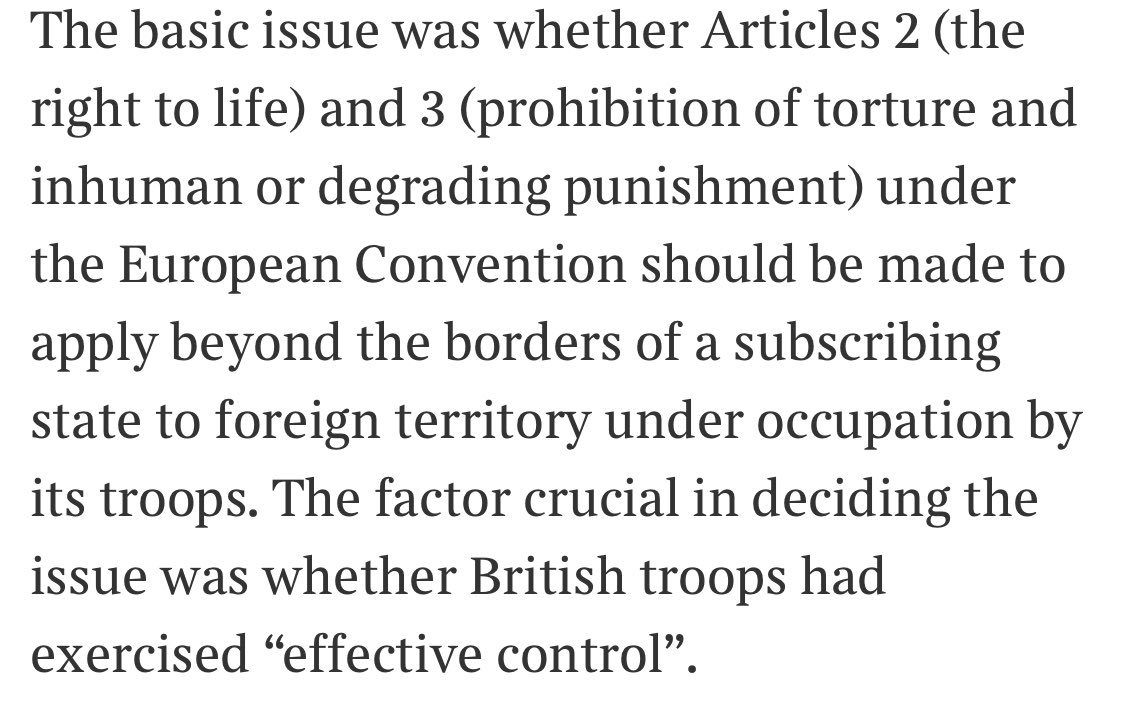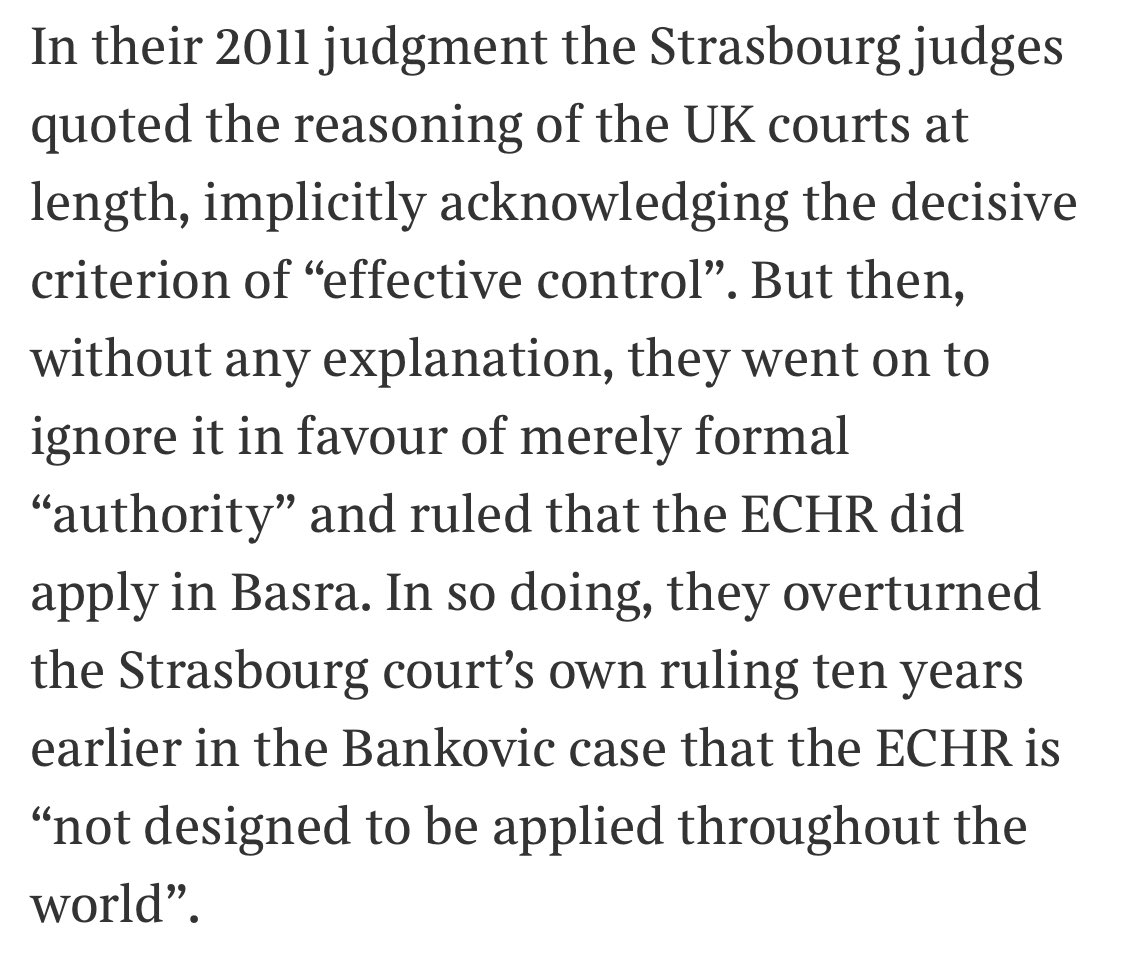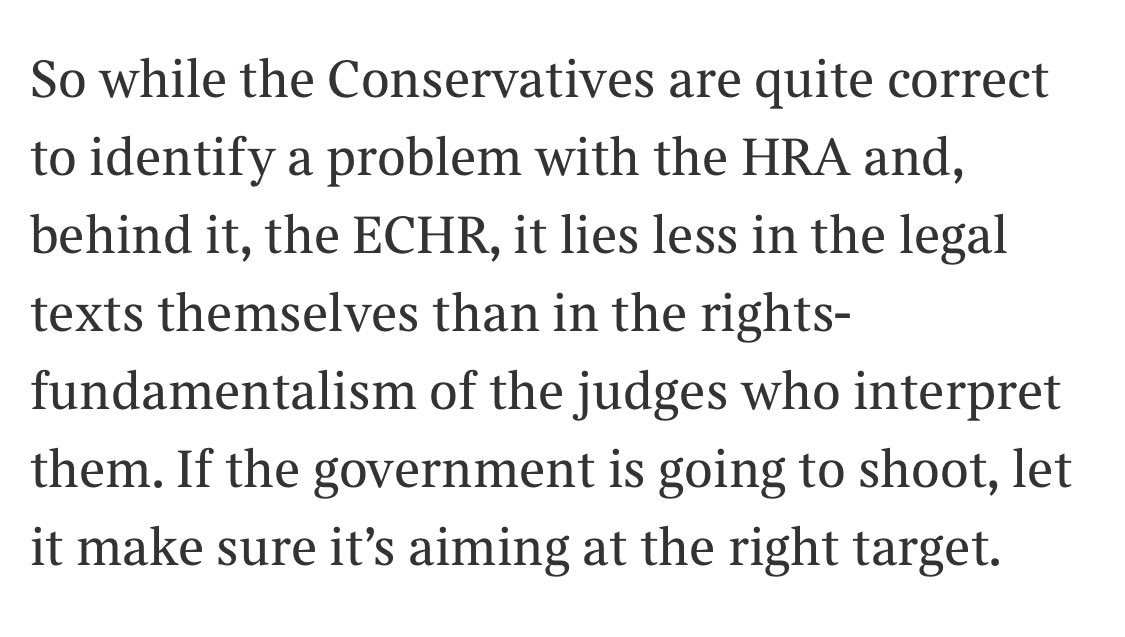
When @thetimes allows someone like @NigelBiggar, who has no obvious legal expertise, to sound off on human rights law, it would be worth getting it checked by someone who can read a European Court of Human Rights (ECtHR) judgment with some understanding.
https://twitter.com/donalkcoffey/status/1315506002951835648
Not that you need to be a lawyer to do so: you just need to be able to read a complex text with a bit of care. (A skill you’d think a professor of theology might have.)
The judgment is here. hudoc.echr.coe.int/fre#%7B%22item…. As usual, the ECtHR sets out the facts and previous reasoning in some detail. For our purposes the reasoning starts at [130].
You then see three headings under which a State can - under the Court’s case-law - be held responsible for securing ECHR rights in a particular area: (a) that the area is part of the State’s territory; (b) “state agent authority and control” and (c) “effective control”.
Head (b) needs breaking down. Para 134 deals with diplomatic agents. Para 135 deals with cases where a state in a territory takes over the public powers normally exercised by the government of that territory.
Para 136 deals with cases where state agents have physical power over someone (ships/prisons/etc).
Head (c) (effective control) is about cases where a state actually controls a territory even though legally it may say that decisions are taken by a local administration: the paradigm case is Turkey/Northern Cyprus.
Pausing there, you can see that the last sentence in Biggar’s paragraph here is simply wrong. There are a number of routes to the conclusion that a State has responsibility for securing ECHR rights in an area. “Effective control” is just one of them. 

The Court’s basis for finding U.K. responsibility to be engaged is at [143-150]. It doesn’t talk about “effective control” (head (c)). It didn’t need to: it had head (b) - in particular the para 135 line of cases (State taking over a government’s public powers in a territory).
Citing the relevant UN texts, it could show that the U.K. had assumed the powers of the Iraqi government over Basra.
So Biggar is simply wrong here. “Effective control” is not the decisive criterion (it’s only a criterion). There is no overturning of past case-law. 

As to the “quoting at length” of national court decisions, the ECtHR always does that. In doing so, it isn’t “implicitly acknowledging” anything.
Now, whether you regard [135] (and Al-Skeini) as a satisfactory basis for attributing responsibility for securing ECHR rights in a territory to a state is an interesting question.
But discussion of that question - and of the wider question of UK adherence to the ECHR isn’t helped by incorrectly accusing the ECtHR of a sudden and unexplained U-turn: an accusation presumably motivated by a “this is an irrational and unpredictable court” narrative.
As for this passage, in the current climate of knife attacks on lawyers doing their job, a professor of theology might care to reflect on the lessons on loose language that one can draw from the history of Henry II and St Thomas a Becket. 

To keep everything together, here are my comments on @NigelBiggar’s rather peculiar response to my thread.
https://twitter.com/georgeperetzqc/status/1315586401208016896
• • •
Missing some Tweet in this thread? You can try to
force a refresh




